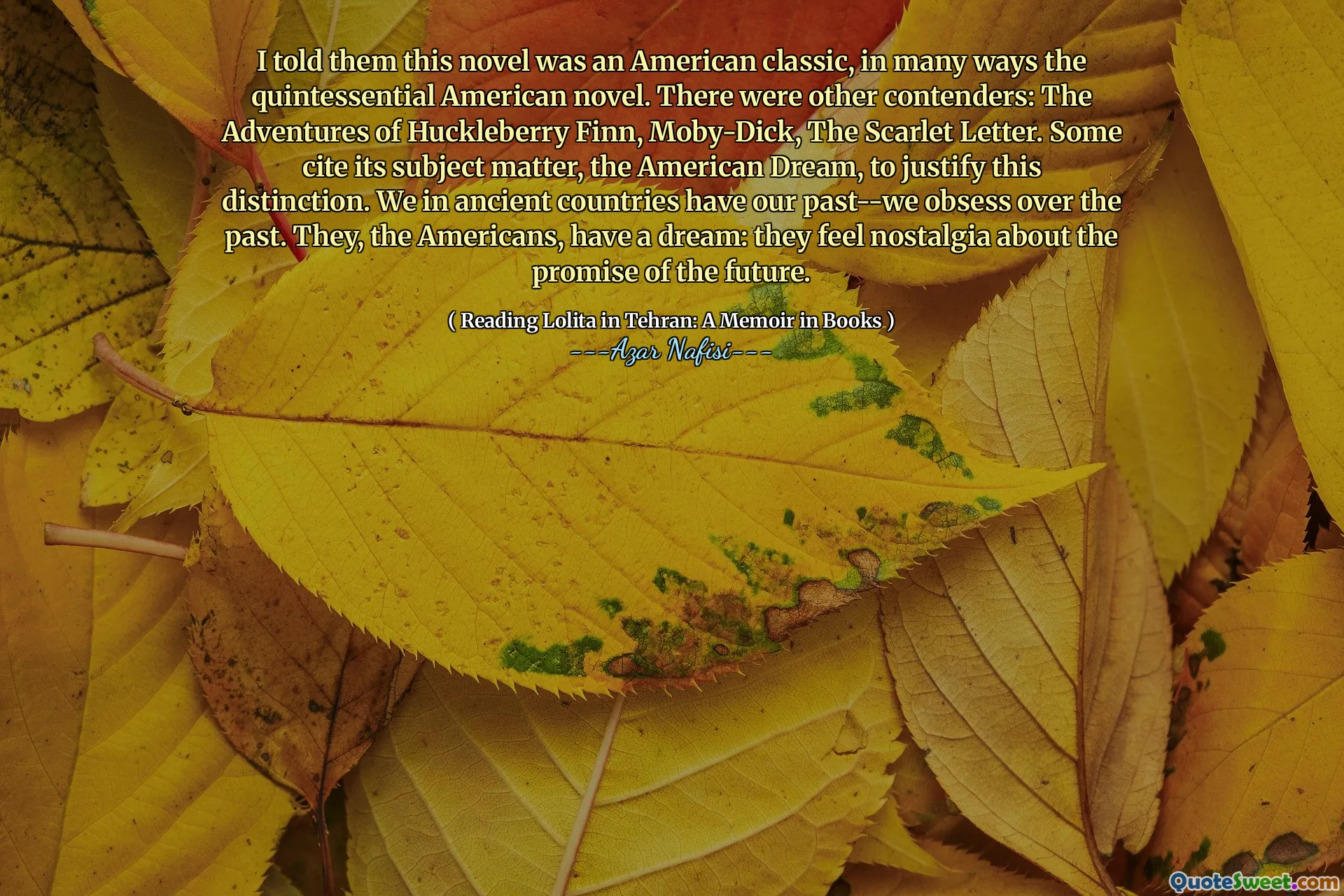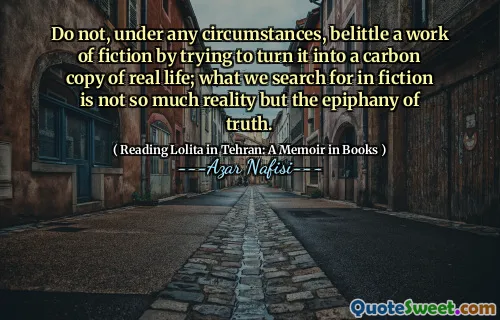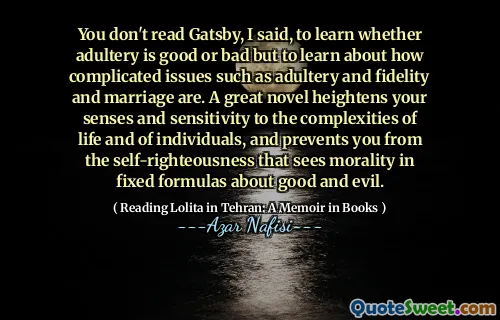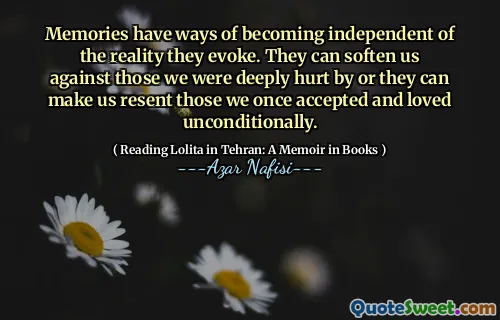
I told them this novel was an American classic, in many ways the quintessential American novel. There were other contenders: The Adventures of Huckleberry Finn, Moby-Dick, The Scarlet Letter. Some cite its subject matter, the American Dream, to justify this distinction. We in ancient countries have our past--we obsess over the past. They, the Americans, have a dream: they feel nostalgia about the promise of the future.
📖 Azar Nafisi
In her memoir, "Reading Lolita in Tehran," Azar Nafisi presents the idea that certain American novels epitomize the essence of the American experience. She argues that works like "The Adventures of Huckleberry Finn" and "Moby-Dick" resonate deeply with themes that define the nation's character. Nafisi emphasizes that the focus on the American Dream sets these novels apart, as they reflect a cultural ethos centered around hope and aspiration rather than historical reflections.
Nafisi contrasts the American perspective with that of countries with ancient histories, noting that while they are often preoccupied with their past, Americans are more enchanted by the potential of the future. This forward-looking viewpoint captures a unique aspect of American identity, reinforcing the notion that literature serves not only as entertainment but also as a lens through which the cultural values and dreams of a society can be understood.











